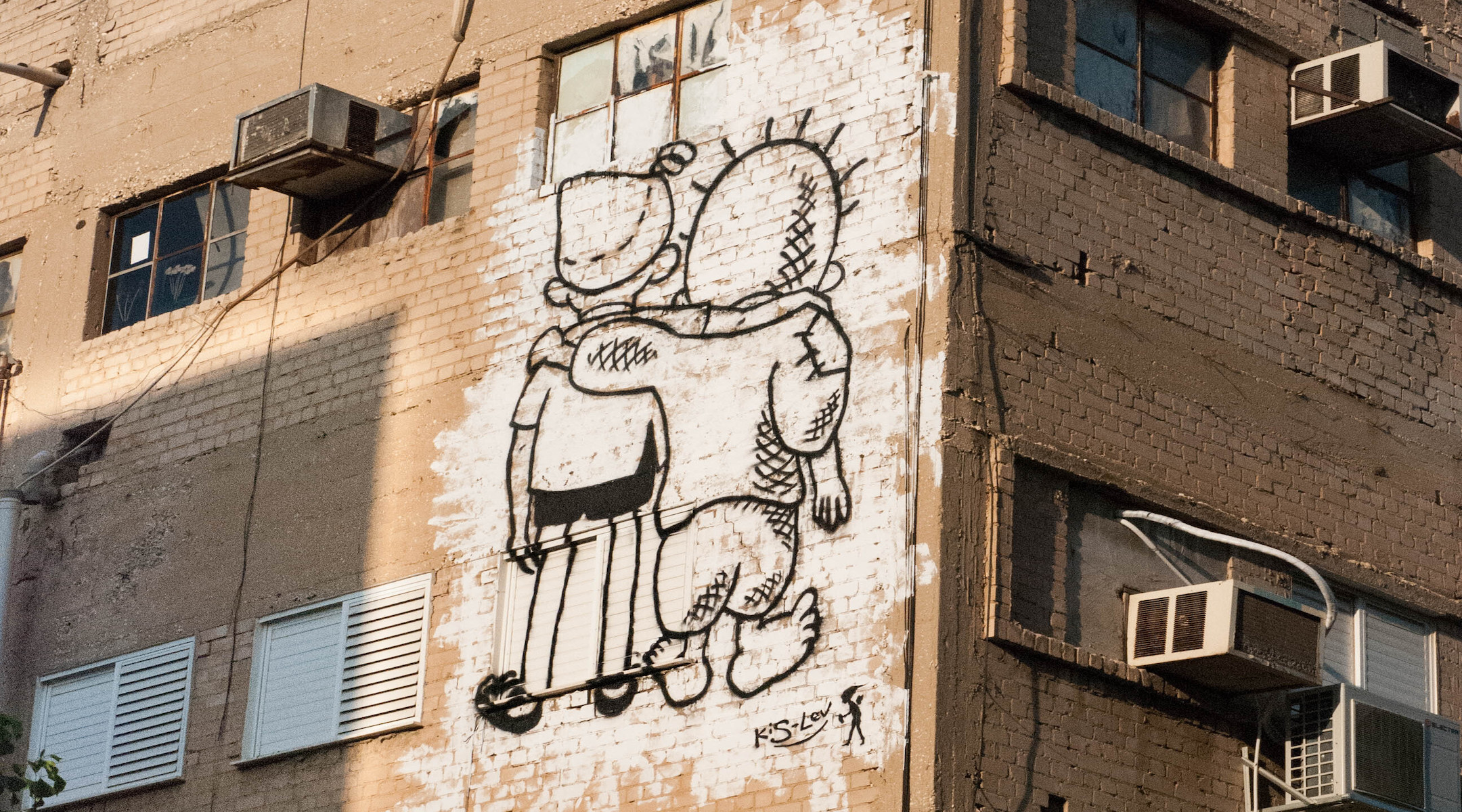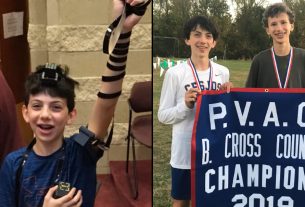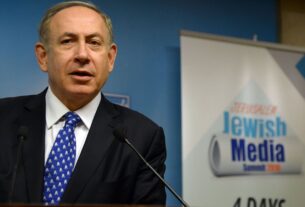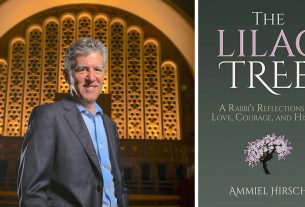For the sake of Zion I will not be silent, for the sake of Jerusalem I will not be still. – Isaiah 62:1
(JTA) — For the past three nights, as the rocket sirens blaring through Jerusalem forced my children and me to rush to shelter — and heralded what we now know would be a massive onslaught of rocket attacks by Hamas on Israel — I have been unable to sleep.
My heart is with my friends and family across Israel, who are running back and forth from shelters or have simply given up and started putting their children to sleep in safe rooms. And my heart is with parents and children in Gaza who have no shelters to run to and can only sit in their homes in unsubsiding fear.
My heart is sick at the senseless deaths of far too many innocent Israelis and Palestinians, including many children. And my heart is broken by the lynchings and mob attacks by both Palestinian Arabs and Israeli Jews and the fracturing of society throughout this land.
We can never allow ourselves to accept as inevitable the utter terror that Israelis are experiencing as they flee from hundreds of rockets, that Palestinians in Gaza are experiencing as 14-story apartment buildings are bombed into smithereens, or that Jewish and Arab citizens across Israel are experiencing as nationalist mobs torch cars, burn down buildings and lynch innocent passersby. The primary short-term goal for every Israeli and Palestinian leader at this moment must be to achieve an absolute and immediate cessation of all violence.
But lack of violence is not peace, and lack of violence does not on its own advance justice, rights or long-term security for either side. The reality for Palestinians has been awful for decades and has only worsened. Israeli control over nearly every aspect of their lives, focused solely on ensuring Israeli security and expanding Jewish settlement and hegemony — while almost entirely abdicating responsibility for Palestinian security, well-being and rights — has created an utterly untenable situation.
While violent resistance is absolutely condemnable, it is sadly unsurprising after decades of discriminatory policies, separate and unequal systems of law, and tremendous suffering. Nor is it surprising that the Palestinian citizens of Israel, who are inextricably part of the Palestinian people, have joined in the fray.
And we, the Israeli side, have most of the power. Had our elected officials chosen over the past seven years of relative calm to strive toward a better future, there were countless ways to have improved the situation for all. And had we — Israeli citizens and Jewish supporters of Israel — taken advantage of the relative peace to place this issue at the center of our national and peoplehood agenda, our leaders would have been forced to listen and work toward a durable and just resolution of the conflict.
Tragically, however, it seems that the only time we pay attention and feel goaded to act is when violence and war explode — precisely the time when true and deep work toward lasting security, dignity, justice and true peace is nearly impossible.
Palestinians, of course, have a parallel responsibility to work toward peace, justice and security for all. They must do everything in their power to remove the murderous Hamas regime in Gaza, to demand elections and new, visionary leadership in Ramallah, and to build a broad-based nonviolent movement that will work for a better future for all in this land. And I am profoundly grateful to know many extraordinary Palestinians working tirelessly every day toward those goals. But just as they must hold their leaders and society accountable, so, too, must we.
It is not disloyal, antisemitic, anti-Zionist, self-hating or traitorous to demand that the Israeli government work proactively toward security, justice, equality and dignity for all human beings in this land. On the contrary, it is the responsibility of every loyal and patriotic Israeli. And according to the Pew study released this week, American Jews largely agree: Nearly 60% feel emotionally attached to Israel, while only one-third said Israel is making a sincere effort for peace with the Palestinians.
I speak out despite painful backlash and even attacks from fellow Israelis and Jews because I know that neither Israelis nor Palestinians are going anywhere. Our stories are intertwined, our futures inextricably linked. Neither of us can possibly win until we find a way for all of us to win. I am raising three beautiful and innocent Israeli boys who will be drafted into the Israeli army in a few short years. I cannot stand by and allow violence, hatred and war to be their future.
One sentiment being widely expressed in Israel and among pro-Israel Jewish Americans is that now is the time for thoughts, prayers and solidarity — and not for calling for policy change. “Politics” should come only after the immediate threat subsides, the argument goes. I reject this idea. Now, when everyone is listening, is the time to declare that we are not destined for endless conflict, and there is enough abundance here for all of us.
It is precisely because I and countless friends and colleagues care so deeply about Israel and the Jewish people that we do everything we can to create a better future here for all. Anything less would mean abandoning our children and future generations to endless conflict. It would also mean neglecting our obligations to uphold our deepest values: both a profound commitment to the Jewish people and our future in this land, and also a profound commitment to the infinite value, dignity and right to freedom, security and justice of every human being.
I pray for a quick cease-fire and halt to all violence. And then I call on every Jew who cares about the future of the Jewish people in the land of Israel to hold tightly to the sense of urgency we feel right now, and to work not just for a lack of violence but for a future of justice, security, equality, freedom and flourishing for all. For the sake of Zion and Jerusalem we cannot allow ourselves to be silent. Not ever — and certainly not now.





